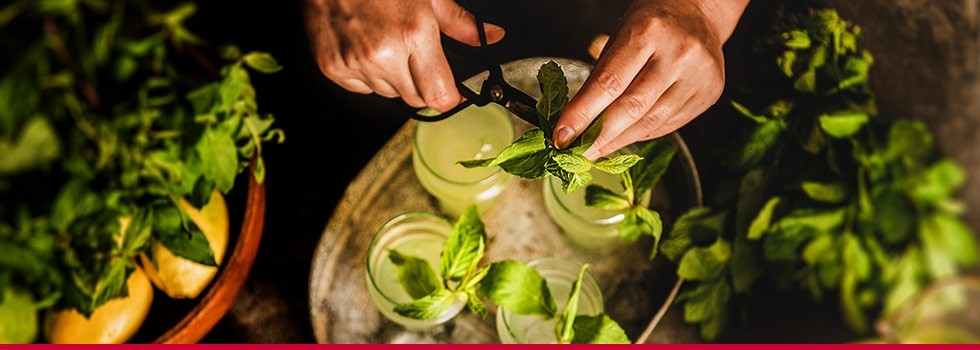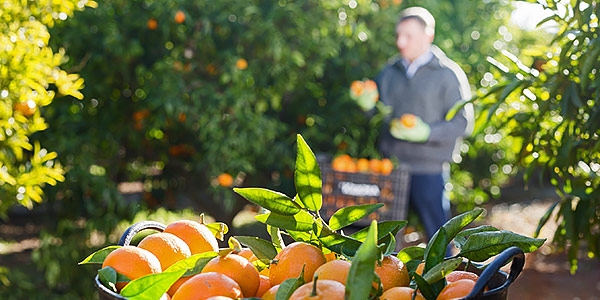Promotional Features
The importance of naturalness: Using botanical extracts and organic ingredients to satisfy evolving consumer needs
Based on the constant evolution of consumer aspirations for health and well-being, authenticity and clean label products, the industry is facing a changing demand for new product developments, reformulations and market strategies. In 2020 and the decade to come a focus on functionality and satisfying sensory taste attributes is evident to serve the evolving needs of today’s consumers. At the same time, sustainability and transparency are major factors that need to be obtained across the whole supply chain.
Pushing naturalness with botanical extracts
Transparency and clean(est) labelling are key for new product developments. Hence, ingredients need to obtain sensory appealing characteristics and provide a declaration as natural as possible. Preserving the best of nature’s ingredients, botanical extracts address the demands of today’s health-savvy and wellness-seeking consumers, providing functional solutions to keep up with current and future market needs.
According to a report by Zion Market research, the global food botanicals market is expected to generate around $1,489 billion by 2025, growing at a CAGR of around 3.2% between 2019 and 2025.
Botanical extracts can be found in a growing number of product launches across all major segments, from beverages, to baked goods and dairy products or savoury categories such as soups, sauces and snacks. Likewise, they play an increasing role in plant-based dairy and meat alternatives, providing both sensory value and transparency in terms of product labelling.
One of the most influential categories for extracts are non-alcoholic beverages. Products such as near water, flavoured water or infused water are focusing on consumer groups shifting from drinks with a high sugar content to more natural and less sweet options by using a range of botanicals within their formulations. This further creates opportunities for herbal varieties that comprise a more bitter taste or combinations with mint, tea leaves, mild spices or floral notes.
Defining market success through integrated botanical solutions
Based on responsible sourcing, highest quality standards, extensive research and development, and state-of-the art extraction methods, Bell Flavors & Fragrances EMEA is able to provide both functionality and sensory value. Our comprehensive expertise in the extraction of various plant-based raw material helps us to offer a diverse range of products that aim to create depictional advantages for the food and beverage industry based on 100% natural ingredients. Thus, focusing on increasing the consumer acceptance and guaranteeing clean(est) labelling.
Botanical extracts can be derived from a variety of plants, including herbs and spices, fruits, citrus fruits and berries, vanilla, cocoa and coffee, flowers, roots and leaves. At the same time, certain blends can be created to deliver authentic taste characteristics to product segments within beverages, bakery and confectionery, dairy and savoury categories along with food supplements. With a high focus on innovation and consumer needs, we are helping our customers to create future-oriented market products based on our broad portfolio of liquid and solid extracts. Using integrated solutions and synergies, Bell realises tailored product concepts and individual product needs – from first ideation to market launch.
Organic food and beverage products gaining importance in the marketplace
According to market data provided by Research and Markets the global market for organic food products is projected to expand at a CAGR of 11%, reaching a value of $220 billion by 2024.
The growth in organic food and beverage products in recent years can be equally attributed to increasing health-consciousness and growing interest in clean labelling and transparency of ingredients as well as environmental concerns. Sales volume of organic food products has amplified especially among younger consumer groups, such as GenZs but also Millennials, seeking products that reflect their ethical beliefs and individual lifestyles. What unifies all consumer types is the demand for healthier food options and the concerns about highly processed food and artificial ingredients alongside the effects of GMOs, antibiotics or pesticides. The impact of food production on the environment as well as a growing desire for regional products equally play a major role.
Next to the US, Western European countries including Germany, France, Italy, Spain, Benelux and the UK are among the markets recording the strongest dynamics. Furthermore, organic is currently one of the biggest growth drivers in retail business, sustained by both branded products as well as own labels. Being a major opportunity for the Value Added Private Label Market, organic as such is helping to generate shopper loyalty and category growth.
As purchasing decisions for organic food are majorly based on health, environment, food safety and quality, consumers are highly aware of product ingredients, labelling and sustainability aspects of the food they consume. Next to tea, oils and vegetables, categories such as non-alcoholic beverages, baked goods, dairy products, confectionery and snacks are moving into the spotlight, focusing on organic claims and ingredients. Thus, providing manufacturers with challenges when reformulating their existing products.
Being compliant to the new EU organic regulations
With respect to the ever-growing demand for organic food products on a European level, legislation is changing, too. The new EU-Regulation (EU) 848/2018 effective for organic-certified products from January 1st, 2021 will lead to an increasing focus on reformulation within a variety of food and beverage products. In order to keep the organic certification within end products, they are only allowed to contain organic-suitable or organic-certified natural source flavourings (95:5) and/or organic-suitable or organic-certified extracts.
Organic suitable and certified flavour profiles
Ensuring to deliver a comprehensive portfolio of flavours and extracts fitting market needs and consumer demands, Bell offers a portfolio of organic suitable natural source flavourings (95:5) and extracts that meet the new EU organic regulations. Additionally, Bell EMEA has carried out an organic certification for its European site.
Our organisational structure ensures compliance of our production methods with organic regulations while adhering highest quality based on carefully selected raw materials. Therefore, Bell is able to offer a variety of organic certified beverage compounds – helping customers to create organic products based on authentic, sophisticated taste profiles, especially for product developments within the non-alcoholic beverage segment.
Delivering comprehensive support in product formulation, the Bell team can help you in finding solutions for the new EU-organic regulations. Contact our team at: info@bell-europe.com.





